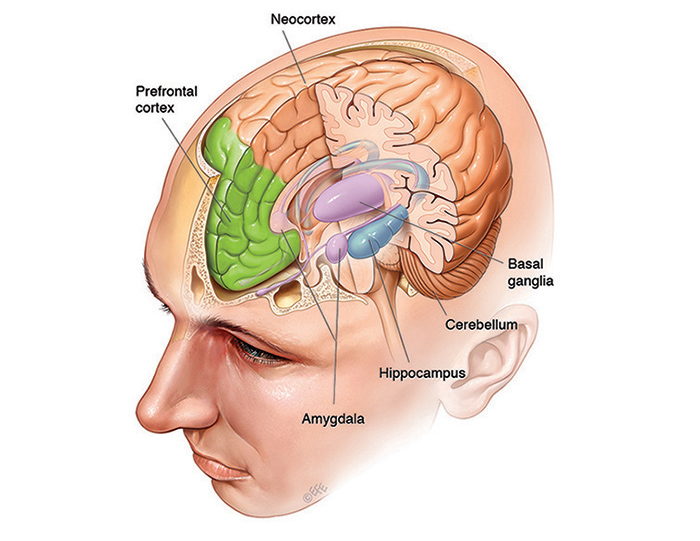
# Novel Study Provides Hope for PTSD Treatment via Memory Generalization
Envision a scenario where your heart races at the sound of fireworks—not from joy, but from an all-consuming dread. Such responses, linked to a solitary traumatic incident, exemplify **stress-induced memory generalization**, a characteristic symptom of Post-Traumatic Stress Disorder (PTSD). Innovative research from The Hospital for Sick Children (SickKids) demonstrates how stress can alter the way memories are encoded, providing new perspectives on potential PTSD treatments.
The study, directed by **Dr. Sheena Josselyn** and **Dr. Paul Frankland**, appeared in the distinguished journal *Cell* on November 15, 2024, revealing crucial biological processes behind stress-driven memory generalization. This finding might lead to novel therapeutic avenues for those struggling with PTSD.
## What Is Stress-Induced Memory Generalization?
Stress-induced memory generalization describes the phenomenon where traumatic memories become applicable to unrelated situations, leading individuals to experience fear in safe environments. For instance, an individual with combat experience may connect the sound of fireworks—a normally innocuous event—with distressing memories from war. Such dysfunction in the brain’s response system is a quintessential aspect of PTSD.
“Individuals with PTSD frequently exhibit fearful reactions to settings or circumstances that present no actual risk, greatly impacting their quality of life,” states Dr. Sheena Josselyn, Canada Research Chair in Circuit Basis of Memory. “Our research has pinpointed a method to mitigate these excessive fear reactions, potentially easing the serious impacts of PTSD.”
## Discoveries: The Significance of Endocannabinoids
By partnering with **Dr. Matthew Hill** from the **Hotchkiss Brain Institute** at the University of Calgary, the research team aimed to uncover how stress alters *engrams*, the biological footprints of memory within the brain. They found that stress specifically interferes with the processes that dictate the **specificity** of memory encoding, resulting in heightened fearful responses that extend beyond the initial context.
The primary offender? **Endocannabinoids**—naturally occurring substances in the brain that help manage stress reactions. The study reveals that stress markedly increases the release of endocannabinoids, which in turn disrupts the function of dedicated **interneurons** (neurons responsible for modulating brain activity). This disruption expands memory engrams—facilitating the elicitation of fear by unrelated stimuli.
### “Interneurons typically assist in maintaining order within memory circuits. Imagine them as bouncers at a club—they determine who is allowed entry,” explained Josselyn. “However, when stress triggers an excessive release of endocannabinoids, the bouncers lose control, and the exclusive venue becomes overcrowded. This leads to a blurred perception of threats, causing fear responses to escalate, even in environments that should feel safe.”
## Underlying Mechanisms: Stress and Memory Proliferation
The researchers utilized a **preclinical model** to examine how stress modifies memory. By instigating stress before exposing the model to a situation that provoked anxiety, they monitored how negative memories became more generalized. Normally, memory engrams rely on a specific, limited network of neurons; however, following stress exposure, these neuronal connections broadened, rendering the brain overly sensitive to stimuli not linked to the original fear-triggering incident.
The endocannabinoid system within the brain is crucial in managing this response. When excessively stimulated by stress, it results in the generalized fear response. This insight is vital as it reveals the biological foundations of broad aversive memories in PTSD. Targeting this pathway may enable the development of enhanced treatments to reinstate normal memory specificity.
## Is It Possible to Reverse PTSD Symptoms?
Encouragingly, the study suggests that it may be feasible to counter the detrimental impact of stress on memory. Scientists found that by **inhibiting endocannabinoid receptors** located on specific interneurons, they could revitalize the typical, narrower size of memory engrams. This diminished the overgeneralization of fear responses, indicating a possible **therapeutic focus** for PTSD.
This research contributes significant evidence to the notion that **endocannabinoid receptors** serve a dual function in regulating both memory development and emotional stability. This fresh pathway for treatment intervention—a mechanism capable of modulating fear and memory formation without suppressing essential stress responses—could transform the approach to PTSD and other anxiety-related disorders.
## Prospects for Future PTSD Treatments
Although this research remains in the preclinical phase, it opens avenues for potential therapies that target **endocannabinoid receptors** in managing PTSD symptoms. One of the primary hurdles in addressing PTSD is balancing the brain’s natural coping capabilities while curtailing disruptive, generalized memory responses related to trauma. The findings of this study suggest it may be feasible to lessen harmful generalization without impeding the body’s critical responses to genuine threats.
The relationships between memory function and psychological growth highlighted in this study have implications that extend beyond the treatment of PTSD. A **2023 study**